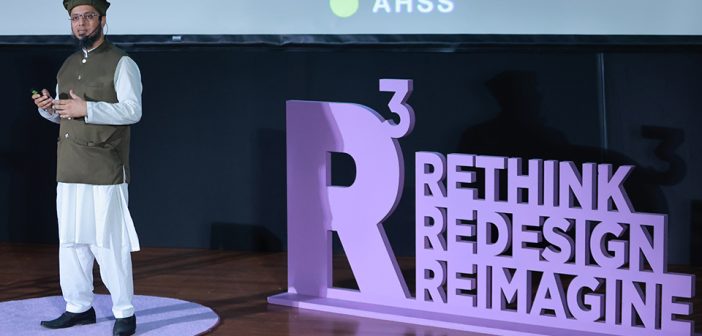Dr Qasim Pasta, Assistant Professor in the Computer Science program at Habib University, was the recipient of the Teaching Excellence Award for the Dhanani School of Science and Engineering (DSSE) during the Awards Night 2024. During the R3 Talks, which were a part of the Pedagogical Development Week (PDW), Dr. Qasim Pasta shared his insights on interdisciplinary pedagogical techniques he utilized for his award-winning course, Social Network Analysis. The PDW at Habib University consists of talks surrounding the enhancement and contextualization of pedagogical techniques, serving as a platform for faculty members to come together, exchange ideas, and engage in discussions on effective teaching practices.
Project-Based Learning in Social Network Analysis
Dr. Pasta’s course “Social Networking Analysis” was applauded for its project-based learning approach and bridging the gap between computer and social sciences. As part of the course, students were required to acquire and analyze data themselves to work on the contextual problems they were interested in, ranging from climate change to hiring procedures.
Addressing Social Issues Using Computational Tools
Watch Full Video where Dr Pasta explains the importance of an interdisciplinary approach to solving contemporary societal challenges.
Bridging Theory and Practice in Addressing Social Issues
This flexibility was only made possible due to the project-based approach of the course which allows students to delve into a range of social problems. The emphasis on solving social problems in this course derives from Dr Pasta’s belief that while there is an immense emphasis among scientists to build faster and more advanced algorithms, there is an equally pressing need for individuals to leverage existing tools to solve the plethora of current social problems.

Dr. Pasta was inspired by this ideology when attending the Summer Institute in Computational Social Science in Bamberg, Germany, in 2019. Once back in Pakistan, he implemented the learnings at Habib University so students in the Social Development and Policy program also had the opportunity to learn valuable computational techniques.
With a strong belief in transdisciplinary education, Dr. Pasta restructured an earlier course related to social networks, shifting its focus to ‘Social Network Analysis,’ where network and computational sciences are directly connected to the social realities they impact. The enhanced curriculum aims to foster a deeper understanding of social dynamics among students, preparing them to thoughtfully engage with the complex challenges facing society today.
A Collaborative Approach to Teaching
The success of the course, however, arises not only as a result of the ideology behind its development, but also from the integration of a project-based learning approach. As part of this pedagogical technique, Dr. Pasta claimed that “the teacher should become the partner of the course and the project as well.”
By acting as a partner in the project, the professor can provide guidance and support, while still allowing the students to drive the direction of their work. This collaborative approach fosters critical thinking, problem-solving, and communication skills – all essential for success in the rapidly evolving field of computer science and its applications in the social sciences.
Commitment to Teaching Excellence at Habib University
At Habib University, the best university in Pakistan for undergraduate education, we place a strong emphasis on maintaining high standards of teaching by consistently improving our educational methods. A key initiative supporting this is the Pedagogical Development Week (PDW), which offers various workshops and panel discussions aimed at helping faculty explore new, contextually relevant teaching strategies.




